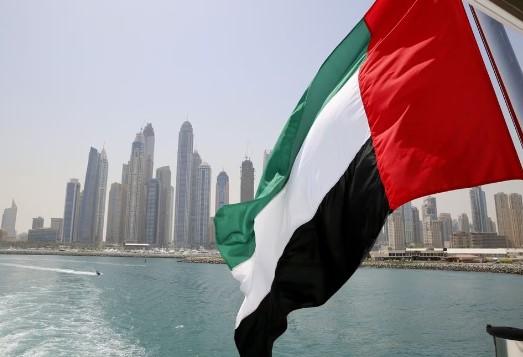UN Report: UAE Tops Arab Countries in Frontier Technology Preparedness

The United Arab Emirates has climbed five spots to become the leading Arab country and 37th out of 166 nations in the latest UN technology index.
The index assesses countries’ readiness to adopt advanced technologies, including artificial intelligence, with an emphasis on environmentally-friendly innovation.
According to the Ministry of Industry and Advanced Technology, the UAE has moved from the “upper middle” group to the “high” score group.
The Frontier Technologies Readiness Index 2023, published by the UN Conference on Trade and Development, ranks nations based on their information and communication technology deployment, expertise, research and development activities, industry activity, and access to finance.
Sarah Al Amiri, the Minister of State for Public Education and Advanced Technology, stated that the report demonstrates the UAE’s leadership in creating and implementing new transformative technologies to boost efficiency, decrease emissions, and hasten the energy transition.
In fact, the UAE is leading the way in cutting-edge technologies that support sustainable industrial development and contribute to the decarbonization of other economic sectors.
According to the Boston Consulting Group, spending on digital technology, including IT, telecoms, AI, IoT, blockchain, and robotics, is expected to reach $20 billion in the UAE over the next three years.
The UAE is well-positioned to double the contribution of its digital economy to GDP, increasing it from 9.7% to 19.4% within the next decade, according to the report. The Dubai Chamber of Digital Economy‘s study also predicts that the UAE’s digital economy will expand to over $140 billion by 2031, up from nearly $38 billion presently.
Sarah Al Amiri, the Minister of State for Public Education and Advanced Technology, praised the UN report, stating that it demonstrates not only the ministry’s national industrial strategy, but also the country’s Net Zero strategic initiative and role as a hub for fostering climate technologies.
According to Unctad, the 17 frontier technologies examined in the report, such as AI, IoT, and green hydrogen, currently represent a $1.5 trillion market. By 2030, this market could increase to over $9.5 trillion, or about three times the current size of the Indian economy.
According to a report by the United Nations Conference on Trade and Development (UNCTAD), developed economies are currently leading in the adoption of frontier technologies, leaving developing countries behind.
The US, Sweden, Singapore, Switzerland, and the Netherlands are among the most prepared high-income economies.
China is the highest-ranking developing country at 35th place, with Brazil at 40, India at 46, and South Africa at 56.
China’s ranking is attributed to rural-urban differences in internet coverage and broadband speed.
The report identified India, the Philippines, and Vietnam as over-performers, with high rankings in research and development and information and communications technology. However, Latin American, Caribbean, and sub-Saharan African countries are at risk of missing out on the current technological opportunities without appropriate policies.
The report urged governments to act quickly to capitalize on green innovation opportunities.




